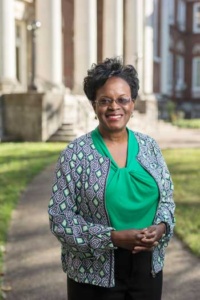Beginning this year, Vanderbilt University and Fisk University will embark on a partnership to reduce the prevalence of HIV and hepatitis in the Nashville area. This new partnership is part of a program that began in 2015, when Vanderbilt was awarded a $1.5 million, 5 year grant to bolster resources and education for young black men who have sex with men, a population that is disproportionately affected by HIV.

Dr. Sandra Barnes, a Vanderbilt professor and Assistant Vice Chancellor for Equity, Diversity, and Inclusion, wrote the 2015 grant for this project and now leads the program. She stressed that while this population is more at risk for HIV and hepatitis, this is not a result of a lack of responsible behavior or knowledge.
“I was interested in ways in which they are being resilient, ways the community can provide support to enhance the strategies, knowledge, and information they already have… coming from a perspective that acknowledges the existing capacities that they already have as opposed to that kind of myopic way of thinking about people who are actually quite savvy,” Barnes said.
Each year, a group of 50 young black men will be invited to attend an intensive training and education weekend. These men are chosen as opinion leaders in their community who tend to lead the conversations within their social circles. These leaders will then help spark more conversations within their communities between partners and friends.
The grant also allows free HIV and hepatitis testing to be offered to hundreds of people each year. Members of the six person team, which consists of graduates from both Vanderbilt and Fisk, also distribute educational information and hold open houses at universities and community centers all over the area. The program also helps these men develop their own spiritual, social and professional identities and deal with stigmas present in their daily lives.
I do think it’s important, when we can, for our research to have some bearing on the lives of people.
“They are dealing with stigmas around sexual behavior, around race, around being young because even though we live in a youth oriented society sometimes there are stigmas in terms of ‘well, young people this and the millennials that’… sometimes around socioeconomic status for young men that are homeless,” Barnes said.
The new relationship with Fisk developed because of the school’s strong ties to the Nashville community, and allows more people to benefit from the services offered under this grant. This partnership also strengthens existing ties between the universities. As a historically black university, Fisk allows the program to increase its connections within the city. Barnes herself is a graduate of Fisk University.
“I was really excited about the opportunity to write this grant and I was pleasantly surprised when I got it the first time right out of the gate,” Barnes said. “That was really exciting for me. There’s a professional side to this and a personal side to this as well because I do think it’s important, when we can, for our research to have some bearing on the lives of people. I like to write articles and books like the next person, but I’m hoping that it will mean something to someone moving forward. This particular grant enabled me to take my academic interests in a way that could help someone.”

